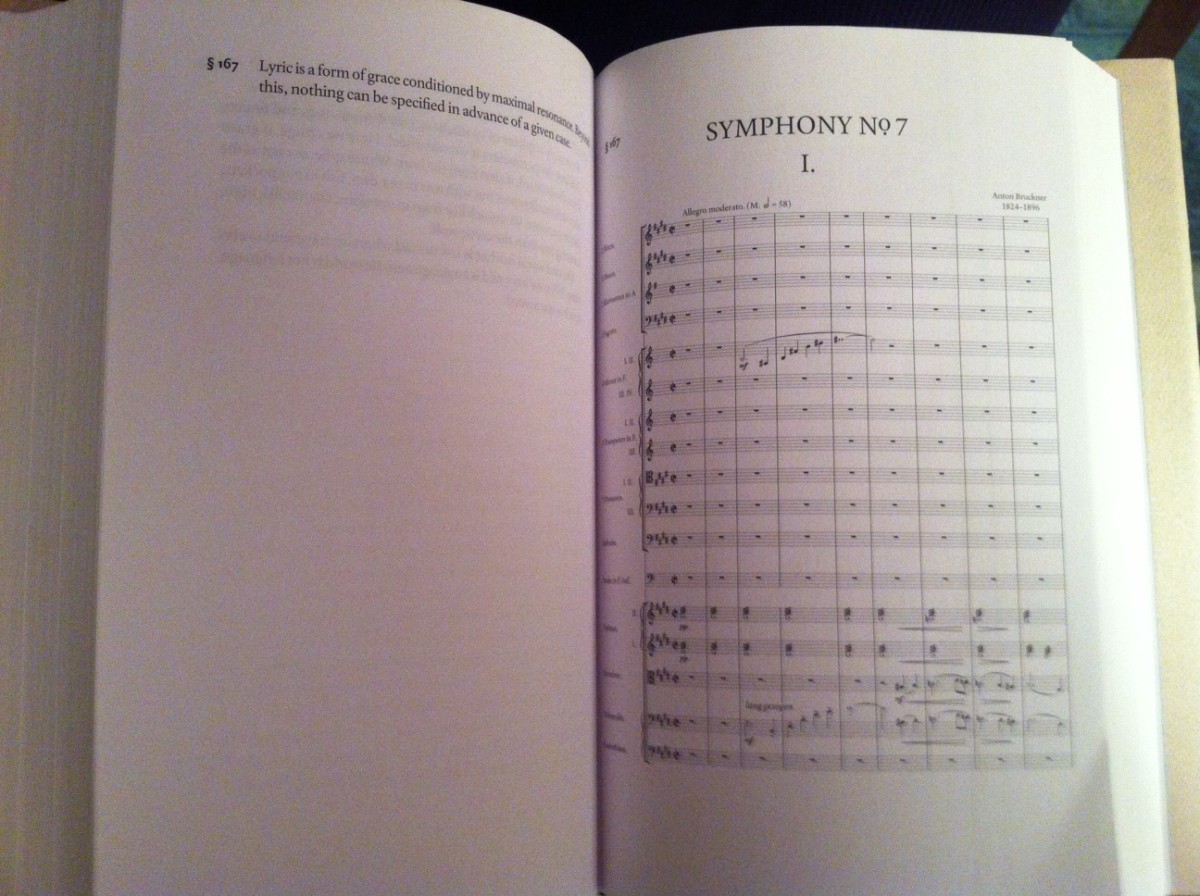Marlena and I are collaborating on the encoding challenge. We are both interested in Canadian ecological poetry, which led us to consider the work of Robert Bringhurst and Jan Zwicky as options for our encoding challenge.
In what follows I reflect on Jan Zwicky’s Lyric Philosophy, the revised second edition, published in 2011 by Gaspereau Press.
This text fascinates me for many reasons, one of which being the complexity of its form, and the relationship in the text between form and function. Non-linear in nature, Zwicky takes a polyphonic approach to her reflections on time and resonant meaning. On each recto page is a passage by Zwicky, while on each verso are the thoughts of another thinker. While not directly commenting on the other thinker’s work, Zwicky’s placement of the passages allow them to exist alongside, and speak to, one another. In the introduction, she writes: “The relation of the two texts to one another is somewhere between counterpoint and harmony, somewhere between a double helix and the allemande of the earth and moon.” It gestures towards what David Gelernter describes as deep beauty: “An idealized integration of form and function” (Kirschenbaum, 2004). The text is shaped by the physicality and spatiality of pages and signatures. The negative space on each page also adds to the meaning of the text by both inviting the reader’s hands into the margins and suggesting where to pause.
The form of the book challenges understandings of interface. Kirschenbaum (2004) writes: “… the interface is also where representation and its attendant ideologies are most conspicuous to our critical eyes. Ostensibly wedded to the ideal of user-friendliness, the interface is also where we deploy our most creative features and imaginative functions.” The structure of Zwicky’s work is complex: the relationship between form and meaning is not an obvious one, and is certainly not designed to be user-friendly. The form invites the reader to work to make meaning, and much effort is required on the reader’s part to decode the text. The structure of Lyric Philosophy challenges the notion of user-friendliness. It is this challenge which makes Zwicky’s work an intriguing candidate for translation into XML. In the end, we chose a poem by Robert Bringhurst to encode. Lyric Philosophy will have to wait for another time…

